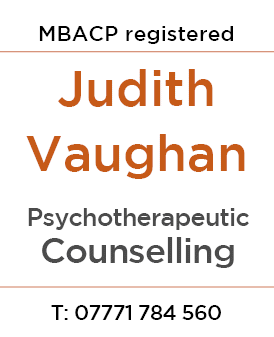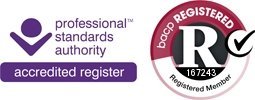

How do we start?
If you’d like to discuss working together, please call, email or text me.
If I have availability that suits you, the next step is to book an assessment session, where we will jointly explore whether we are a good fit and whether my approach suits you.

How long will it take and how often do I come?
If we decide to work together, we will typically confirm a block of weekly appointments, at the same time each week. If your circumstances require a more flexible arrangement, I will do my best to accommodate this.
I work from a principle that relational therapy requires the freedom of an open-ended approach. This does not mean that our work cannot be brief or guided by a particular focus. It is more a case that the process of therapy is not well served by the pre-conditions of time limits and assumed goals.

Where do you work?
From a ground floor room in my home in Montpelier, BS6.

What kind of therapy do you do?
I am a relational therapist. More important than my theoretical approach are the principles of my practice. I am Humanistic which means I explore challenges and struggles as a natural part of being human; I don’t see disorders or diagnosis as the starting point of the conversation. I am Relational which means I believe in the enabling potential of a collaborative relationship which is compassionate, honest, attuned and involved. I consider relationship as the fertile ground for all therapeutic work.
As for the theory, I trained as an Integrative Counsellor. This means I combine an understanding of developmental psychology & philosophy (both Eastern & Western models) with methods and ideas from different but compatible psychotherapeutic schools. I take this approach because I believe it offers a flexibility which best serves the true variety of the human experience. If it interests you to check out the theory, I can tell you that I draw from the following: Existential philosophy; Gestalt therapy; Interpersonal Neurobiology; Jungian theory; the Mythopoetic realm; Psychosynthesis; Somatic Experiencing.

What’s the difference between psychotherapy and counselling?
Counselling often refers to work which relates to an event - loss, relationship breakdown, major life transitions. Counselling is also used to support a desired change in unhelpful habits or behaviours. Psychotherapy is more likely to describe work which relates to psychological development, historic experiences of loss or trauma or difficulties in being which are experienced as persistent, obsessive or chronic. Within both disciplines there are varied approaches.
In my experience it’s rarely helpful to place people’s needs in one camp or the other. So after training as a counsellor, I continued my professional and personal development in psychotherapy and my own therapy process. Our developmental experience will invariably colour our response to our situation, so I find a flexible, adaptable approach suits most people best. Hence the rather clunky description ‘psychotherapeutic counsellor’.
There are people whose particular needs are better served by a specialist therapist. If so, I will identify this and do my best to signpost suitable options. I will only ever work within my competence and at a depth and pace that suits you.

What are your qualifications?
I hold a BACP-accredited post-graduate Diploma in Integrative Counselling.
I trained as a relationship therapist at The Centre for Relational Couples Therapy.
Each year since qualifying, I have deepened and broadened my capacity in counselling and psychotherapy, through continued training, personal therapy, mentoring and self-directed learning. Experience is what matters most, but I won’t allow experience to become a byword for routine. I read widely, allowing many fields to inform and challenge me. I keep up with established and new ideas and practices in psychotherapy, neuroscience and cognitive health.

What experience do you have?
I work with adults of all ages. Before moving to Bristol, I worked as a senior member of the clinical team at ARC, a GP-referred community counselling service in East Devon. In this GP setting, I gained both depth and breadth of experience. Alongside my NHS work, I built my private practice.
In Bristol, I work in private practice.
Prior to training as a therapist, I worked for many years in business, helping companies with projects of growth and potential. I was a company director, then business owner. I’ve worked with international companies, charities and small businesses, where I learned a great deal about identity, relationships and growth.

Copyright 2021 | All rights reserved
Judith Vaughan, Psychotherapeutic Counselling in Bristol, BS6. Experienced Counsellor. In Person and Online.
site by michelle abadie web design